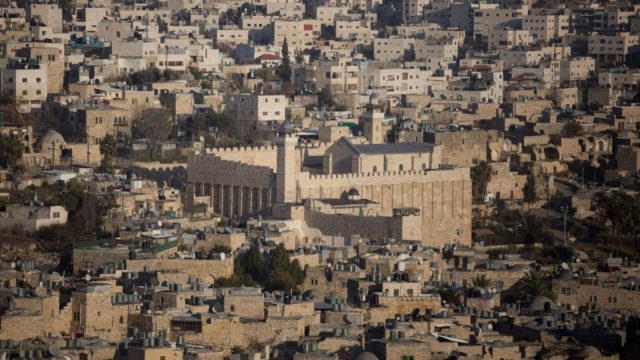
UNESCO, the United Nation’s Educational, Social and Cultural Organization, designated Hebron’s Old City and the Tomb of the Patriarchs in the West Bank (Judea and Samaria) as a Palestinian World Heritage site on July 7. At the same time, a committee of the U.N. cultural agency passed a resolution which put Hebron on a list of endangered sites.
Israel rejected the Palestinian assertions and complained that the resolution, which calls Hebron a place of “Islamic history”, denied the Jewish connection to the city. Israeli Prime Minister Benjamin Netanyahu said, “Not a Jewish site? After all, who is buried there? Abraham, Isaac and Jacob, Sarah, Rebecca and Leah, our patriarchs and matriarchs.”
The Tomb of Patriarchs is an important place for Jews, Muslims, and Christians and is considered by many to be the second holiest site in Judaism. Palestinian diplomats accused Israel of numerous violations including vandalism, property damage, and other attacks, and therefore tried to convince UNESCO to move faster in placing Hebron on the list of sites in danger. Once listed as endangered, the site is under international standards of conservation, is given special protection, and UNESCO must review its situation every year.
At the 41st annual summit of UNESCO’s World Heritage Committee, held on July 7 in Krakow, Poland, a secret ballot on the Hebron resolution was cast. Twelve member states voted in favor of the resolution, three opposed it, and six abstained.
The United States argued that the Tomb of the Patriarchs was not under immediate threat and that placing it on the list of sites in danger undermined the seriousness that UNESCO properly should display. U.S. Ambassador to the U.N. Nikki Haley wrote a letter to two senior U.N. officials asking them to withhold the Hebron designation, arguing that other treasured sites are under more imminent danger. “The UNESCO vote on Hebron is tragic on several levels. It represents an affront to history,” she said.
Under the Oslo peace accords of the 1990s, 80 percent of Hebron is in area A which is under full civil and security control by the Palestinian Authority. However, an enclave around the historic core is under full Israeli military control, and several hundred Jewish settlers live there.





